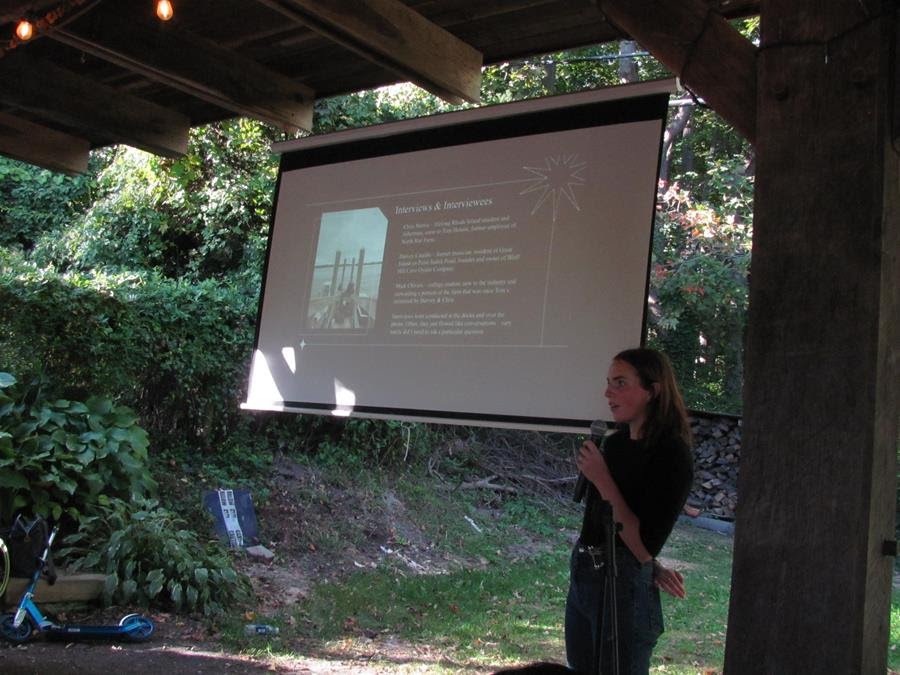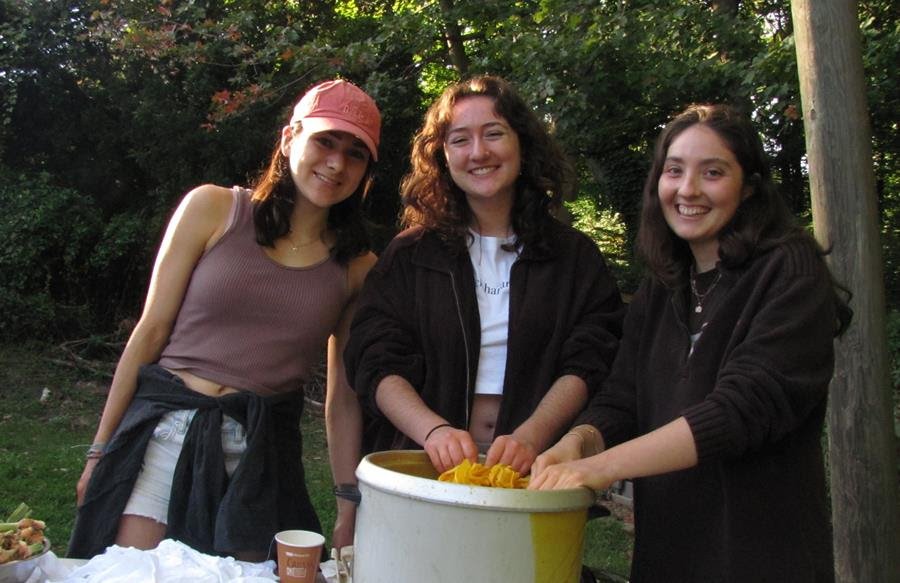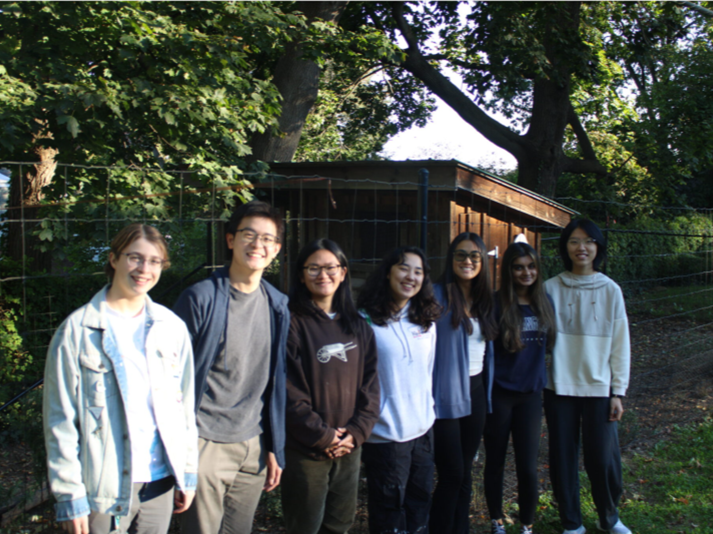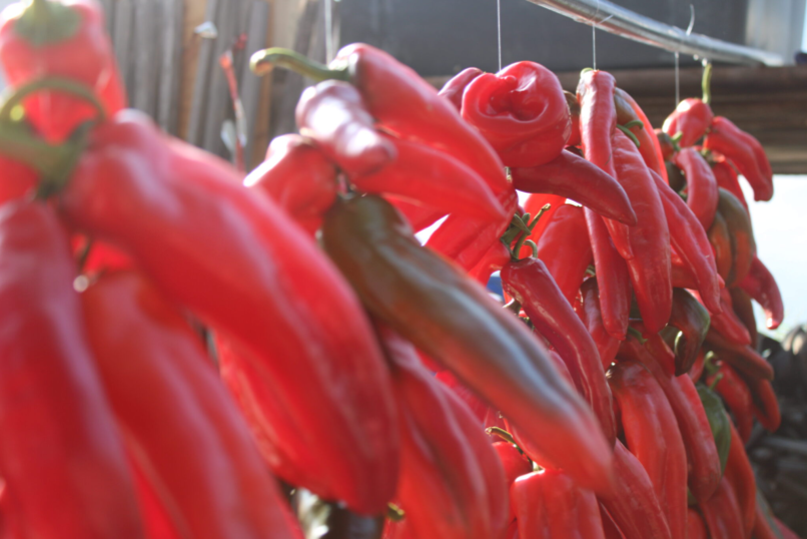




Friday, October 13th saw a bright sunny sky, which supercharged a very productive workday at the Yale Farm. Among merry chatter people uncovered sweet potatoes, strung red pepper ristras, and harvested basil in large buckets. In the midst of mid autumn stress, workday participants also dyed strips of fabric into a dye bath of turmeric powder and ʻŌlena. Soon the fabric will be knitted together and strung up into a garland to adorn the Lazarus Pavilion during the Indigenous Fall Feast later this month. After a full fall workday, everyone made their way to the pavilion afterwards to listen to the Friday talk by Yale sophomore Elizabeth Chivers ’26.
Chivers was a Lazarus Summer Intern this summer who undertook independent research over the summer about the dynamics of change, relationships, and industry in the Point Judith Pond Oyster Farms with the goal of answering one question: “What are the defining practices and economics of Southern Rhode Island’s oyster aquaculture?” She conversed with three local farmers on-the-ground to hear their experiences on practices, as well as how the practices have changed in response to global warming over the years.
Among the interviewees was Harvey Cataldo, founder and owner of Bluff Hill Cove Oyster Company. The primary method used by their farm is the floating bag system, where the mechanisms are spread out horizontally over the ocean’s surface. Chivers also added discussion about how climate change has impacted the industry from the point of view of people constantly engaged in it, highlighting to the audience how global warming results in higher water temperatures, which in turn leads to higher bacteria growth in the sea. This results in a higher likelihood of people getting sick from seafood, a challenge that those in the oyster industry have had to face more and more urgently in recent years. Another interviewee was Chris Morris, a fisherman and a lifelong resident of Rhode Island, who discussed his first-hand observations of oyster farming throughout his many years as an active member. His individual perspective provided a complementary contrast to Cataldo’s larger-scale one. The third interviewee was Mick Chivers, a college student receiving mentorship from Cataldo and Morris as someone new to the industry. The intensive interview-based project drew observations in three primary realms, namely the changes oyster farms have noted from warming sea waters, the relationships between people in the industry, and how technology and policy have shaped the industry as we know it today.
Chivers’ personal connection to her research project led to a high-impact presentation, which was then followed by inspiring and thoughtful conversation as The New Blue a cappella group performed. Read her Voices post recapping more of her project here. Pizza and concord grapes made their way through the crowd as the sun began to set.
Photos from the event by Elio Wentzel ’26 and Arrow Zhang ’26 can be found here.
